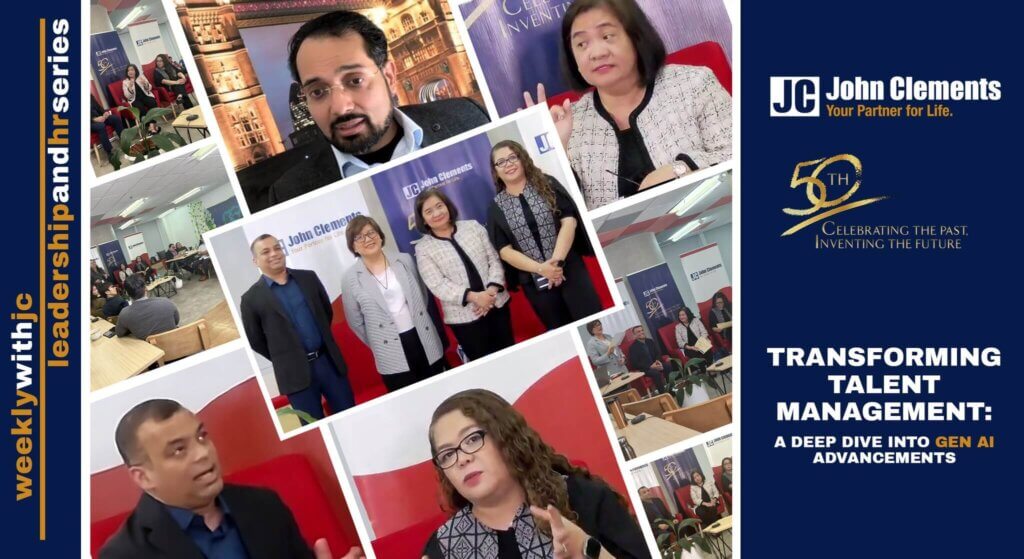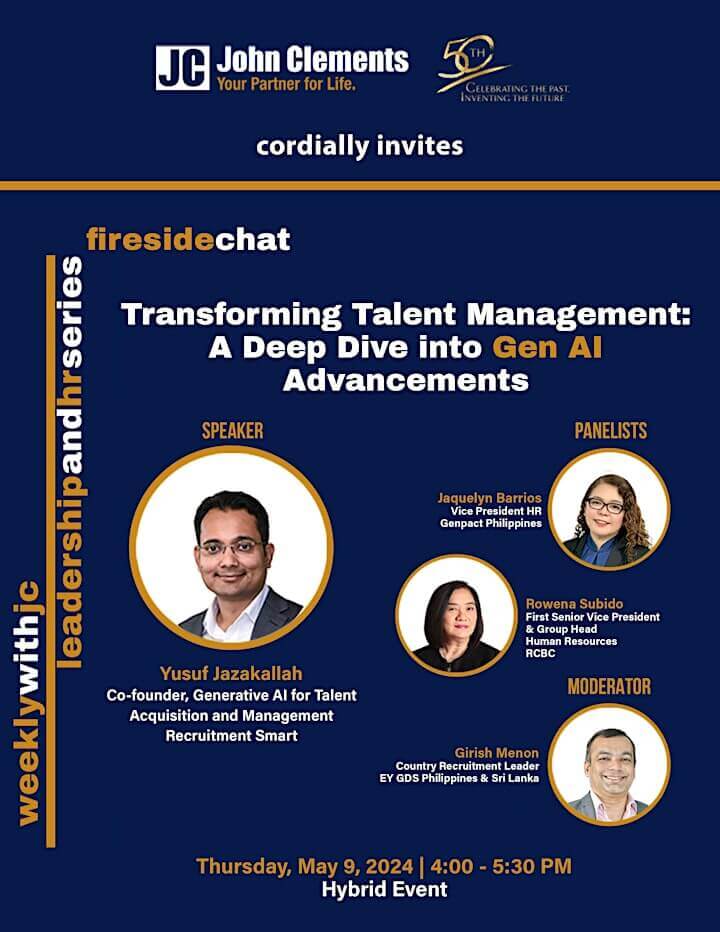AI advancements in talent management have transformed HR practices, shaping a future where artificial intelligence plays a crucial role in how organizations manage their workforce. The integration of AI in talent management is notably transformative, particularly in automating recruitment processes and enhancing performance management.
Innovation in Talent Management
AI tools can rapidly analyze extensive data sets, identify top candidates, and predict employee performance, thereby improving the efficiency and accuracy of HR functions. This evolution allows companies to focus on strategic decision-making and fostering a positive workplace culture, without being burdened by administrative tasks.
On May 9, 2024, John Clements Consultants hosted the third installment of its Weekly with JC Leadership and HR series, focusing on the impact of AI on talent management. The panel included Yusuf Jazakallah, Co-founder of Generative AI for Talent Acquisition and Management at Recruitment Smart; Jaquelyn Barrios, Vice President for HR at Genpact Philippines; Rowena Subido, First Senior Vice President & Group Head for HR at RCBC; and Girish Menon, Country Recruitment Leader at EY GDS for the Philippines & Sri Lanka.
Advancing Talent Acquisition
The discussion commenced with Yusuf Jazakallah sharing how AI can advance talent acquisition by significantly improving productivity, enabling organizations to be more competitive. This involves the automation of candidate screening, contrasting with the manual screening methods traditionally employed in previous years. He also shared a brief demonstration of SniperAI, which is currently being used by global companies, including John Clements Consultants.
Rowena Subido shared a snapshot of one of the dashboards their Human Resources department is using, which presents information on their employees’ academic background, group, rank, position, employee journey, and even the distance of their residence from their offices, among other details. This tool proved very useful during the pandemic.
Jaquelyn Barrios discussed how they incorporate science and AI into HR. These include an employee sentiment analysis bot, which enables real-time employee sentiment information to be used by HR and managers to support their teams; Genome, a cloud-based learning platform that maps learning paths for employees; and Talent Match, a combination of several processes that assist in placing the right people on the right team at the right time.
Harnessing the Full Potential of AI in Talent Management
Technological advancements, such as the use of AI, have been beneficial in streamlining talent management processes. However, for these to be implemented properly, organizations should address some challenges appropriately, including data privacy and security, ethical considerations, resistance to change, and balancing AI and human judgment. By addressing these challenges proactively and thoughtfully, organizations can harness the full potential of AI in talent management while safeguarding against potential pitfalls and ensuring a fair, ethical, and effective use of AI tools in HR practices.
The potential for process improvements with the integration of artificial intelligence in talent management is significant, but it must be approached with a thoughtful and forward-looking mindset, prioritizing the preservation and enhancement of the human element in decision-making processes. Establishing clear guidelines, promoting transparency, and involving cross-functional teams in decision-making are crucial steps to mitigate the risks associated with AI in talent management.
As organizations embrace these principles, they pave the way for a more efficient, equitable, and human-centric workforce, ensuring a harmonious integration of technology and human values in HR practices.

John Clements brings unprecedented scale and speed for your human capital needs through online recruitment consultancy and talent solutions platform. Talk to us today about your recruitment needs.





